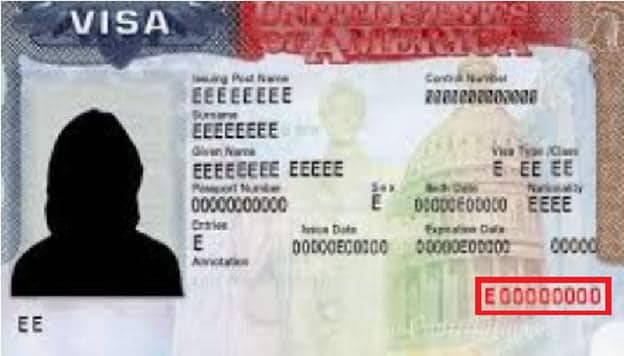Does anyone still believe that the market process should set prices, including wages? Apparently not. Take the controversy surrounding the H-1B visa, the program that “permits” employers to hire highly educated and skilled foreign workers, such as hi-tech personnel.
Judging by the narrow range, everyone involved in the debate is a social engineer. Only three options are on the menu: continue the program, reform it to prevent its misuse, and end it. What’s missing? The “let the market set wages” option Sorry, that’s not on offer.
Let’s start with how the U.S. Department of Labor describes the program:
The H-1B program applies to employers seeking to hire nonimmigrant aliens as workers in specialty occupations or as fashion models of distinguished merit and ability. A specialty occupation is one that requires the application of a body of highly specialized knowledge and the attainment of at least a bachelor’s degree or its equivalent. The intent of the H-1B provisions is to help employers who cannot otherwise obtain needed business skills and abilities from the U.S. workforce by authorizing the temporary employment of qualified individuals who are not otherwise authorized to work in the United States.
The law establishes certain standards in order to protect similarly employed U.S. workers from being adversely affected by the employment of the nonimmigrant workers, as well as to protect the H-1B nonimmigrant workers.
Of course, the government has something to say about wages:
Employers must attest to the Department of Labor that they will pay wages to the H-1B nonimmigrant workers that are at least equal to the actual wage paid by the employer to other workers with similar experience and qualifications for the job in question, or the prevailing wage for the occupation in the area of intended employment – whichever is greater.
Is anyone offended that in a country that thinks itself free, the government decrees that employers need permission to hire “nonimmigrant aliens” and can get it only if certain conditions apply? “Nonimmigrant aliens” are people, in case anyone needs reminding. How’s that good for a country supposedly devoted to freedom and free enterprise?
The standard answer is that those jobs are American jobs. However, if capitalist entrepreneurs want the freedom to hire consenting workers living abroad, the jobs obviously are not American jobs. Who has the right to declare them otherwise? A job is a continuing transaction between an employer and an employee. It has no national label. To insist that it does have such a label because the employer operates on U.S. soil is to accept a premise that requires proof, namely, that the government or a majority of voters owns the country. That premise glaringly clashes with the principle of liberty. It makes freedom a delusion.
When left free, the market sets prices, including wages, through the process that emerges from countless choices by individuals collaborating to achieve their personal goals. These choices include selling, renting, and buying material resources and products. Supply and demand generate a vast money-price system that enables everyone to make plans using economic calculation, as Ludwig von Mises long ago spelled out. Without calculation we could not make more than the simplest plans or judge a project’s success or failure—through profit or loss—afterward. Waste would abound In a world of scarcity, which would be a disaster. Poverty would rule.
Among other things, prices and wages signal to producers what consumers want most keenly. Again, in a world of scarcity, that’s important. Since we can’t have everything right now, we must make choices. Resources producing automobiles cannot be producing washing machines or computers. What to do? Let the price system work its magic—except that it is not magic. It is human action and its welfare-enhancing consequences. When the government prohibits the price system from doing its job, scarce resources are wasted as far as consumers are concerned. In a free and competitive economy, their choices shift resources to the purposes consumers most want to be fulfilled. The whole point of an economy is to serve consumers, remember?
This is no less true for labor. If high-tech companies can find satisfactory foreign software engineers who are willing to work for less than their American counterparts, that’s a signal to be heeded. The Americans have asked too much. They have no right to those jobs or a higher wage. There’s other work to be done—or would be if the government did not interfere. Consumers are never fully satisfied.
Those are the basics. What about H-1B? That is not a market institution. It’s an intervention to somewhat ameliorate the predicament of employers who are denied the full freedom to hire whomever they want. It’s no more than second-best, and it has downsides. For example, its restrictions enable employers to pay foreign workers less than those workers would have earned if they could work freely in America. To get a visa, foreign workers must have employer sponsors. If they wish to quit their jobs, they must find other qualifying jobs or be deported. That undoubtedly keeps visa holders in jobs they would prefer to quit. That’s not right.
But beware those shedding tears over H-B1 “indentured servants.” Those are crocodile tears because those opponents would not replace the visa program with open visas, that is, free immigration. They would shut down the program altogether. My hunch is that visa candidates would prefer the current program to closed borders. They wouldn’t come here if the conditions were not superior to those at home. So let’s hear no more sobbing from “left” and “right” statist populists like Steve Bannon and Batya Ungar-Sargon. These opponents of freedom should not be making economic policy.
Has the program been misused, that is, used contrary to its stated purpose? Undoubtedly. That’s standard operating procedure. When the government hands out favors, political entrepreneurship will emerge on the part of those who don’t want to be left out. This is purely the result of government violations of freedom. Get rid of the program and you get rid of the misuse.
It is certainly to be expected that if foreign workers can freely come to America, some wages will go down. That’s supply and demand. On the other hand, other wages will go up. Immigrants buy consumer goods and start businesses, in some cases, highly successful businesses. Lower market-set wages, by the way, bring lower consumer prices, raising the standard of living. As noted, wage differences signal consumers’ most highly valued wants.
Finally, some might say that we Americans could have the benefits of high-skilled foreign workers without importing them. How? Through trade with their countries. But hold on. The same people who want to shut down H-1B also want tariffs against foreign goods to “protect American jobs.” Even if we have free trade, however, that is not a good answer. Foreigners are much more productive here than they are over there. Why? Because America has more capital and better management techniques than India and elsewhere. Because capital investment per worker is so high in America, any human being will be many times more productive here than anywhere else. That’s good for the workers—and for consumers. Remember: everyone is a consumer.
This matter is not “just economics.” Freedom itself is at stake.

































